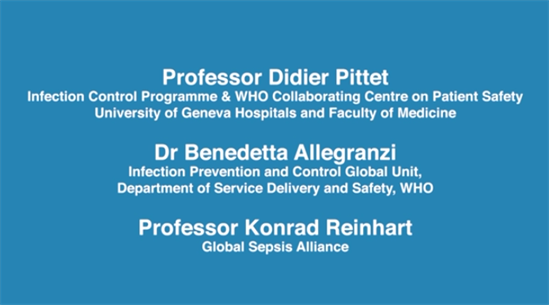Improving the prevention, diagnosis and clinical management of sepsis
Sepsis is a life-threatening organ dysfunction caused by a dysregulated host response to infection. If not recognized and managed promptly, it can lead to septic shock, multiple organ failure and death. It is a serious complication of infection, particularly in low- and middle-income countries, where it represents a major cause of maternal and neonatal morbidity and mortality.
WHO works with Member States and partners to improve prevention and treatment of sepsis. Since 2017, the World Health Assembly adopted Resolution WHA70.7 on Improving the prevention, diagnosis and clinical management of sepsis, which develops WHO’s guidance on prevention and management, draws attention to public health impacts and provides support for Member States in defining standards and guidelines for sepsis control. In 2020, WHO also launched the Global report on the epidemiology and burden of sepsis: Current evidence, identifying gaps and future directions.
These events and publications aim to bring together experts and stakeholders in collaboration against the effects of sepsis in communities and health care facilities around the world.




